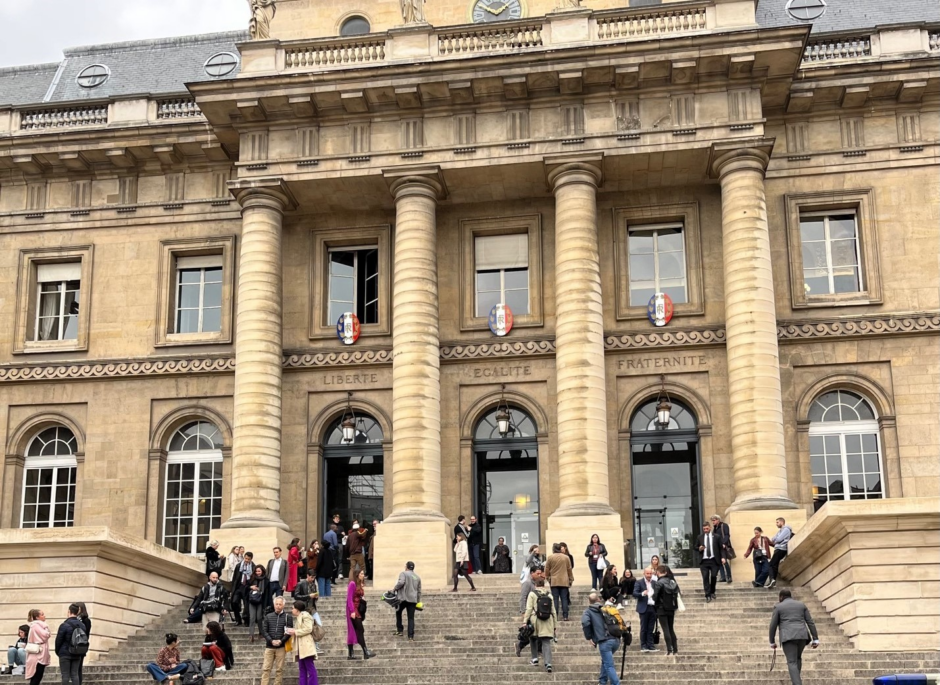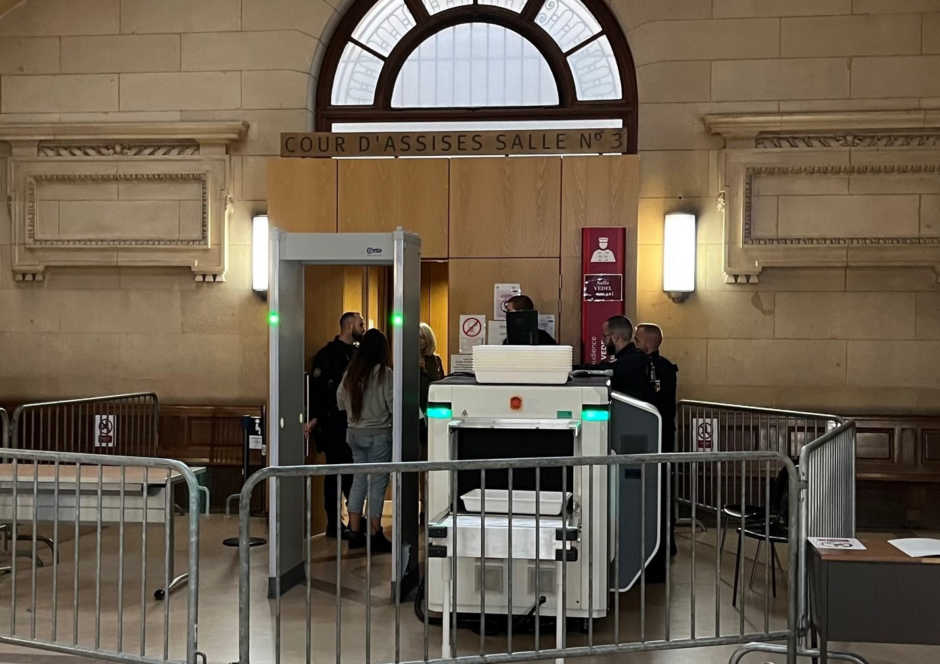
PARIS, France – Though the charges being considered in the trial that got underway here today are “barbarous” according to prosecutors, day one was a quiet affair with the presiding judge of the three-judge panel drawing from a box the names of the jurors who would join them in deciding the fate of former rebel Kunti Kamara.
By Anthony Stephens and Prue Clarke
Kamara, 47, faces life in prison if convicted of crimes of torture, killings, rape and other crimes of which he accused during the period of 1993 to 1994 in Foya, Lofa County when he was a commander with the rebel group the United Liberation Movement of Liberia for Democracy (ULIMO). “Life in prison” in the French legal system is actually 30 years.
The six-person jury and four alternates – seven women, three men, all white except one man of Asian descent – then joined the judges in seats looking down into the courtroom. It was an unfamiliar sight for court watchers used to US-style jury trials or judge-only trials of previous Swiss and Finnish courts related to Liberia’s civil war. Unlike in those systems, in this court the judges and civilians together make up the jury that will adjudicate the case.
Interestingly, the one potential juror of African descent was rejected by the defense. When asked why after the session, a defense lawyer would not divulge the team’s reasoning.
Kamara appeared in an upbeat mood. From an enclosed glass case – similar to that in which Charles Taylor sat for his trial in the Sierra Leone Special Court – he waved to journalists seated in a balcony area and talked with supporters from the French chapter of a Mandingo society representing people from the ethnic group from which Kamara and many of the ULIMO fighters came.
A translator – interpreting the French language used by the court, for Kamara – and Kamara’s court appointed lawyers sat outside the box talking to him through a window.

After a long procedural process during which the presiding judge gave an overview of the indictment and lawyers discussed the challenges of securing the participation of some witnesses, Kamara was given a chance to speak.
“I don’t know them today, I don’t know them tomorrow,” said Kamara referencing the four accusers in the case – three men and one woman – whose names the court has ordered withheld for their safety. “I continue to say that I am innocent.”
“To my gracious God, where I am standing, those people, I don’t know any of them,” said Kamara wearing a black t-shirt and jacket. “And I am a ready to answer any questions. There are a lot of questions concerning all of these allegations since I was arrested. I don’t know them today, I don’t know them tomorrow. That’s all I have to say.”
Outside the court one of Kamara’s two court appointed lawyers said Kamara did not understand why he was here.
He feels, “like someone who is being tried in a country that is not his country and in a language that is not his language,” said Marlyne Secci. “So this is how you can imagine his state of mind for this trial. Mr. Kamara always said he was just a ULIMO soldier and he never made all the crimes that they accused him and that is the fact.”
Kamara has admitted that he was a fighter with ULIMO during the period in question but denies any involvement in war crimes or crimes against humanity.
The court heard that In 1997 Kamara made his way to the Netherlands where he lived for 12 years, working as an electrician and securing citizenship before moving to France in 2016. The judge raised the prospect that Kamara’s departure from the Netherlands may have been an effort to elude investigators there and indicated the question would be explored in the trial. At the time Dutch investigators were already looking into bad actors in Liberia’s civil war. In 2017 Dutch arms smuggler Gus Kouwenhoven was convicted in absentia by a Dutch court and sentenced to 19 years prison for his efforts in arming Charles Taylor during the war.
Kamara was arrested in France in September 2018 and released because of a procedural error a few months later. In 2019 he was rearrested as he attempted to flee France on an expired passport.

The case was brought by the Crimes Against Humanity division of the Paris court which was set up in 2012 to try suspected perpetrators of war crimes and crimes against humanity irrespective of where they were committed.
This is the first case to take place in France that is not related to the Rwanda genocide. Four previous trials have been of accused Rwandans.
The trial will run until November 4 and will hear from three dozen witnesses including psychiatrists, experts and witnesses. The presiding judge told Kamar that Tuesday’s session will be devoted to Kamara and his life and will not delve into his crimes. Two psychiatrists are listed among the witnesses.
This story was a collaboration with New Narratives as part of the West Africa Justice Reporting Project.
